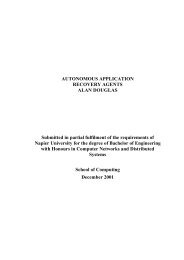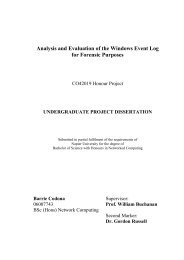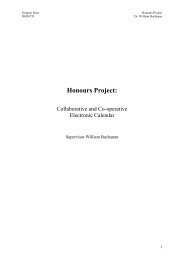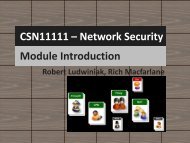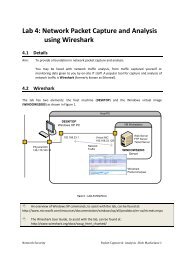Complete set: Intro to C - Bill Buchanan
Complete set: Intro to C - Bill Buchanan
Complete set: Intro to C - Bill Buchanan
Create successful ePaper yourself
Turn your PDF publications into a flip-book with our unique Google optimized e-Paper software.
The following problem appeared as ENIGMA 1168 in New Scientist<br />
5.12 THRICE UNFACTORISED<br />
5.12.1 Richard England<br />
I have found a four‐digit number such that it is impossible<br />
<strong>to</strong> fac<strong>to</strong>rise the numbers formed by its first digit or last<br />
digit or first two digits or middle two digits or last two<br />
digits or first three digits or last three digits or all four digits.<br />
In other words all those eight numbers are prime<br />
except that either or both of the single‐digit numbers may<br />
be unity.<br />
Harry and Tom have also found such a four‐digit number.<br />
The four‐digit numbers that we have found are all different;<br />
but Harryʹs number uses the same digits as Tomʹs<br />
number, though in a different order. Which four‐digit<br />
number have I found<br />
http://www.cs.bris.ac.uk/~edwards/maths/primes.html<br />
http://www.utm.edu/research/primes/lists/small/1000.txt<br />
<strong>Intro</strong>duction <strong>to</strong> .NET<br />
Agilent .NET Course: Module 5, page<br />
11


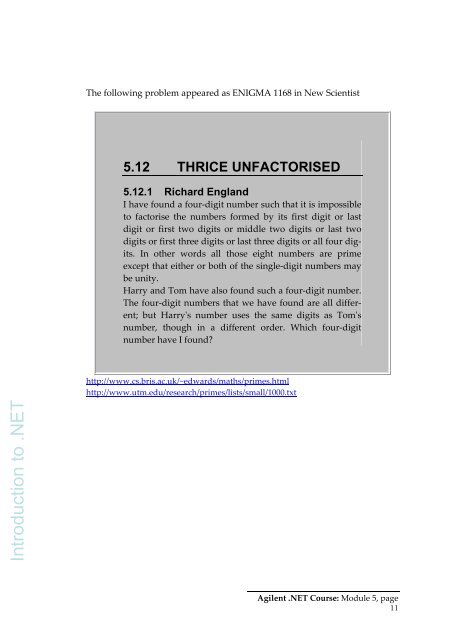
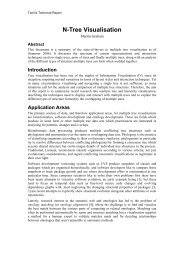
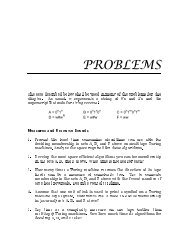
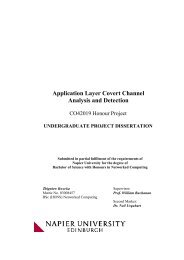
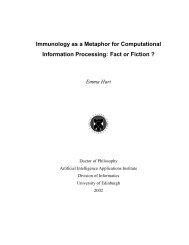
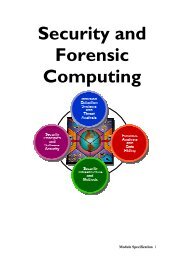
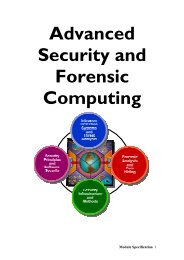
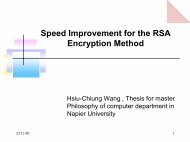
![Unit 5. Switches and VLANs [PDF]](https://img.yumpu.com/34422504/1/184x260/unit-5-switches-and-vlans-pdf.jpg?quality=85)
